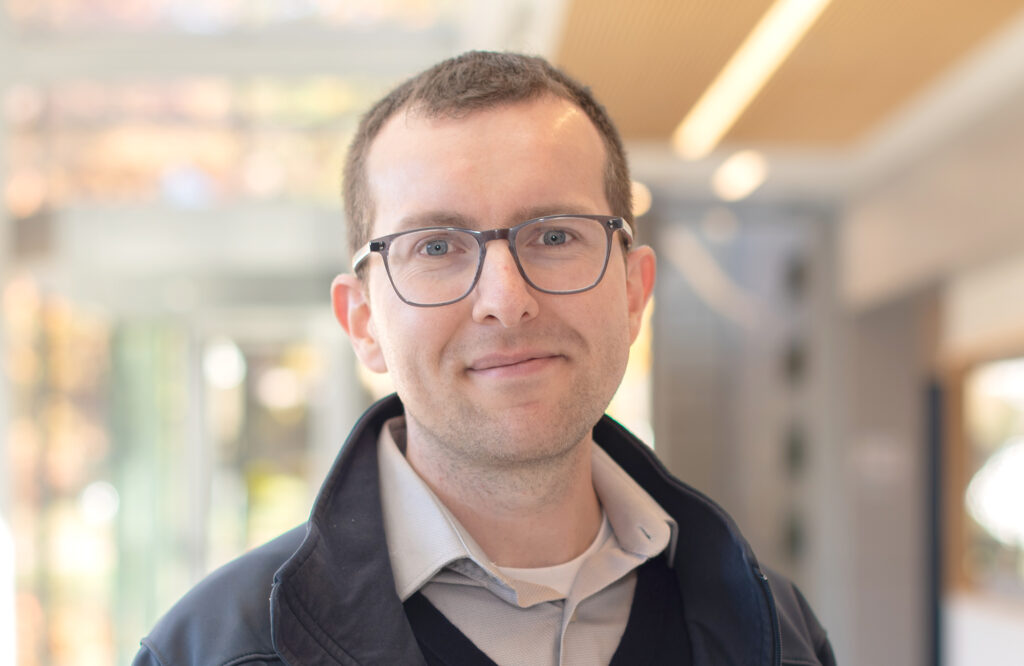Meet new faculty member Inigo Incer

We are delighted to welcome Inigo Incer to the ECE community. Incer joined the ECE faculty this past August 2024 as an assistant professor. His research interests include all aspects of complex systems, emphasizing formal methods and AI that support their compositional design and analysis.
He received his PhD in Electrical Engineering and Computer Sciences from UC Berkeley in 2022 and was subsequently a postdoctoral researcher at Caltech. Before pursuing a PhD, Inigo was an IC designer in Austin.
Incer is currently teaching the course ECE 560, Linear Systems Theory, and next term will be teaching ECE 562, Nonlinear Systems and Control.
To help colleagues and prospective students learn more about Incer, we asked him a few questions.
Tell us about your research.
I work on theory, software, and engineering methodologies to support (i) the compositional design of complex systems with rigorous guarantees, (ii) the verification of whether such systems satisfy their intended requirements, and (iii) the identification of sources of failure when they don’t. My group works closely with experts across various domains—such as aerospace, autonomous vehicles, and synthetic biology—to apply and extend the capabilities of these system-design techniques.
What is the impact of your work?
Today companies struggle to integrate into complex designs components coming from various providers. The frequent news of recalls and re-recertifications in the systems industries is an eloquent testimony to the difficulty of system design. As a result, there are many voices from government agencies, industry, and academia calling for the development of theoretical and practical tools to provide assurance of the correctness of our complex systems.
I work on such theory and tools. My group seeks to provide industry with methodologies and techniques to design products with rigorous correctness guarantees, all while staying within budgets and development schedules.
Our work contributes to society by enabling industry to design provably safe and secure products, such as vehicles and critical infrastructure.
What do you enjoy most about your field?
In addition to the fact that it addresses the needs just discussed, I am drawn to its richness. In system design, we use tools coming from various areas of mathematics, engineering, and computer science, such as AI, algebra, category theory, controls, formal methods, logic, optimization, and programming languages. Moreover, when we work with experts to design systems in a specific area, we apply the tools used in that discipline. There is great beauty in engineering and mathematics, and interacting with so many fields is wonderful.
What’s your favorite thing about teaching?
How much it connects us. Teaching is an opportunity to serve students. By taking a course, students expect to master what the community has agreed is the amount of shared knowledge that someone studying that course should possess. As a result, preparing for class places the teacher in frequent contact with the fundamental ideas of our fields. But doing so also connects us with a wider community, as the attainment of these ideas has taken humanity significant investments of time, effort, and resources. As they are gifts to be met with gratitude and respect, we have a great deal of motivation to clearly communicate the beauty and reach of these ideas.
What qualities do you look for when selecting PhD students to join your team?
Research is extremely rewarding. There is much to be known, so many open problems. But as a general rule, discoveries are the rewards of effort. When we are in the midst of this effort, not knowing what treasures lie to be found, our work can feel like the exploration of an arid land. Thus, perseverance and patience can be of great aid to a researcher. Also, since in our work we interact with many fields, it is important to have a general willingness to learn new areas in significant depth. In the Complex Engineering Systems Laboratory, we work on theory, software, and the application of these to design specific systems. This means that students drawn to theory, software development, and the design of a specific system (such as autonomous vehicles, robots, and spacecraft) will find projects in our group.
What is your approach to mentoring graduate students?
In addition to technical content in coursework, there are many things to learn in a PhD program: how to identify research projects, what problems we want to work on, what existing societal needs can be addressed with our skills, what research communities we should join, what organizations can fund our work, etc. The responsibility to address these questions lies within each of us.
I see it as part of my role as a PhD advisor to guide my students as they are facing these questions. To this end, I make myself available as students prefer. Some students prefer frequent meetings with their advisors, while others opt for seldom one-on-ones. The nature of our interactions will change over time. When students join the group, I will provide suggestions of research problems and teach them content that could be useful. But eventually they become experts in their fields, and we work together as colleagues.
 MENU
MENU 
